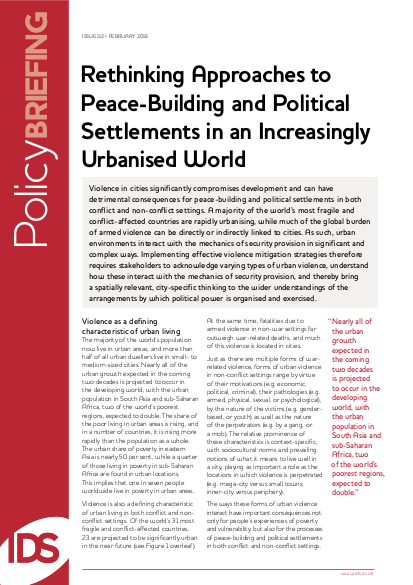
Violence in cities significantly compromises development and can have detrimental consequences for peace-building and political settlements in both conflict and non-conflict settings.
A majority of the world’s most fragile and conflict-affected countries are rapidly urbanising, while much of the global burden of armed violence can be directly or indirectly linked to cities. As such, urban environments interact with the mechanics of security provision in significant and complex ways. Implementing effective violence mitigation strategies therefore requires stakeholders to acknowledge varying types of urban violence, understand how these interact with the mechanics of security provision, and thereby bring a spatially relevant, city-specific thinking to the wider understandings of the arrangements by which political power is organised and exercised.
Links
Resource collections
- UN Habitat - Urban Response Collection
- Urban Response - Urban Crisis Preparedness and Risk Reduction
- Urban Response Collection - Community Engagement and Social Cohesion
- Urban Response Collection - Economic Recovery
- Urban Response Collection - Environment and Climate Change
- Urban Response Collection - Housing, Land and Property
- Urban Response Collection - Urban Crisis Response, Recovery and Reconstruction
- Urban Response Collection - Urban Resilience
